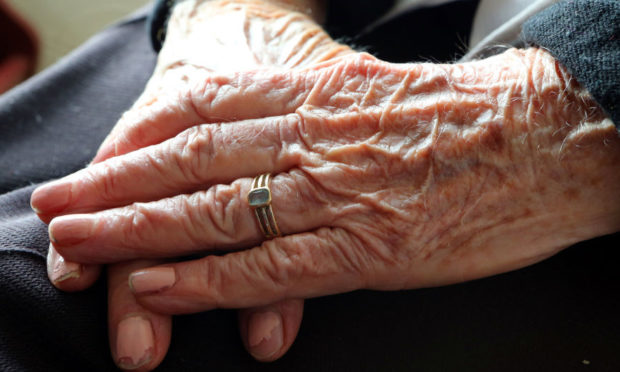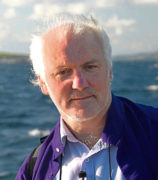They say the mark of a civilisation is how we treat our elderly, and I’m not convinced we do it as well as we should. The worst has been demonstrated in some of the terrible circumstances in some of our care homes during the Covid pandemic when the elderly and the extremely vulnerable were left to die, as if expendable.
The vast majority of care homes are not like that: they have a hugely dedicated staff who not only look after but care for the residents. Treat them as members of their own family, with dignity and respect. My own mother, for example, was wonderfully cared for in Taigh a’ Chridhe Uile Naomh in Uist in her latter days: they made her life both safe and valued.
It’s also important to remember that ‘the elderly’ are not one homogenous group. Like ‘the young’ or ‘the middle-aged’ or any other shortcut description, the elderly are millions of individuals, each with his or her own history, memories, dreams, hopes, disappointments and ambitions. Each one of them carries a world of experience.
Some traditional communities still value their elders more than anything else in the universe. They are the living bearers of their cultural and linguistic traditions and practices and in many fragile communities when one of these elders dies a whole library of songs and stories and customs passes away.
My own native Gaelic culture is in that situation, with an elderly demographic, even given the very welcome growth in Gaelic medium education amongst the young. But the loss is greater than the gain. For every child that enters that educational world more elderly native speakers with their richness of language die, and that’s a mathematical (not to say cultural) equation that cannot be sustained.
But we are thankful for small mercies. My father was born in 1910 and my mother in 1918 so spent the first forty or so years of their lives without a National Health Service. They were so grateful when it came, and I was always conscious of the grace that it brought with it. The same with the Old Age Pension – they still spoke kindly of Lloyd George, because they remembered their own parents’ time when old-age provision was left entirely to the family and to the community. As a child, I remember them talking about the Poor House and the need to do well at school and work hard, instead of ending up there. And here we are, with Marcus Rashford and others still campaigning on the same issue…
Now that I’m approaching Lloyd George’s benefits myself, my only regret is that the pension is nowadays paid directly into the bank and that you can’t go down to the Post Office on Friday to collect it. I remember the men, with ther curly moustaches and clay-pipes, and the
women in their shawls, going along to the Post Office for their benefit. But more importantly, for the blether that went with it as they stood outside, cutting up the bogey-roll tobacco, and catching up with each other’s news. It was a vital social occasion where those who lived on their own had some company for a while and those who had a tale to tell had an audience.
Proverbs bear much wisdom about the trials and joys of old age. One Gaelic one advises us not to moan about growing older, since not everyone is given that particular blessing.
Though my favourite quote about age comes from a poem by the great Russian poet Anna Akhamatova who, along with so many millions, endured terrible persecution and suffering during the long Stalin decades. Her own husband was executed by the Soviet Secret Police and her son sent to the Siberian gulag. Akhmatova’s remarkable poetry bears witness not just to endurance and resistance, but to life itself. It shines with the message that it’s always better to light a candle than to sit forever cursing in the darkness. Let us love age as much as youth.
I know that it is not given to all of us, for old age often brings with it loss of memory, but Anna Akhmatova, who outlived Stalin, knew her life’s work was to bear witness for those who had been made voiceless. She puts it so well for those of us who have the privilege of looking back on both tragedies and joys when she wrote about the one she loved: “I have been given a long life so as to remember you.”

